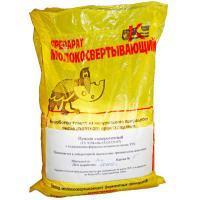New Zealand bans the export of live animals

Breeding cattle from New Zealand are in demand on the world market, but may no longer be exported. Animals for slaughter are no longer allowed to be exported abroad. From 2023, the EXPORT of breeding animals will also be prohibited.
After a two-year transition period, New Zealand will completely ban the export of live farm animals by sea from 2023. “At the heart of our decision is to uphold New Zealand's reputation for high animal welfare standards. We must stay ahead of the curve in a world where animal welfare is increasingly under scrutiny,” said Agriculture Minister Damien O'Connor in Wellington.
Following the sinking of the livestock carrier Gulf Livestock 1 in September 2020, killing approximately 5,800 cows and 41 crew members, a live export analysis was launched and is now nearing completion. Its results will affect the export of breeding and productive cows, which are mainly sent to CHINA . The export of sheep, goats and cattle for slaughter is already prohibited. O'Connor stressed that maritime transport has seen improvements in animal welfare in recent years, but long travel times and lack of animal welfare checks in the destination country remain a problem.
Livestock exports accounted for only 0.2% of New Zealand's agricultural export earnings. Cow exports, which have been ongoing since 2015, rose to 113,000 heads last year, generating an export income of 148 million euros, according to the National Farmers' Union. Federated Farms spokesman Wayne Langford said he was surprised by the export ban because farmers attach great importance to animal welfare. "The Farmers' Union has no information about violations of the high standards of livestock exports," the spokesman said.
Read together with it:
- Фермер из Увата получил грант на строительство мясоперерабатывающего заводаПолученные средства будут направлены на строительство производственных мощностей для переработки мяса абердин-ангусов и овец породы дорпер. В планах фермерши - начать выпуск высококачественной говядины, баранины и полуфабрикатов, а также обеспечить местное население Уватского округа продукцией собственного производства с 2......
- Боливия экспортирует говядину на сумму 797 миллионов долларов и вводит новые цифровые сертификаты для внешней торговлиЭкспорт говядины из Боливии в период с 2021 по 2025 год достиг 797 миллионов долларов. Китай является основным рынком сбыта этого мяса, на который приходится 74% продаж, сообщила Карина Серрудо, генеральный директор Национального таможенного управления. Параллельно с этим ведомство включило сертификат безопасности экспортных пищевых продуктов для говядины в систему «Единое окно для внешней торговл...
- Поголовье свиней в Бразилии продолжает растиТакже наблюдался рост убоя свиней на 1,2%, достигнув рекордного уровня в 2024 году, хотя рост сектора замедлился. Экспорт свинины также достиг исторического максимума. По географическому распределению Толедо (штат Парана) сохранил лидерство по производству свинины среди 5487 муниципалитетов, где ведётся свиноводство, на долю которого приходится 2,2% от общего поголовья (95......
- Bloomberg узнал о плане G7 значительно ужесточить санкции против РоссииНовый пакет санкций будет включать меры, в частности, против энергетики, финансов и военной промышленности, а также крупнейших нефтяных компаний России. Разработку пакета G7 планирует завершить в октябре, выяснил BLOOMBERG Страны «Большой семерки» (G7) приближаются к соглашению о значительном ужесточении санкций в отношении России, сообщает агентство Bloomberg со ссылкой на проект заявления. «Мы с...



























































